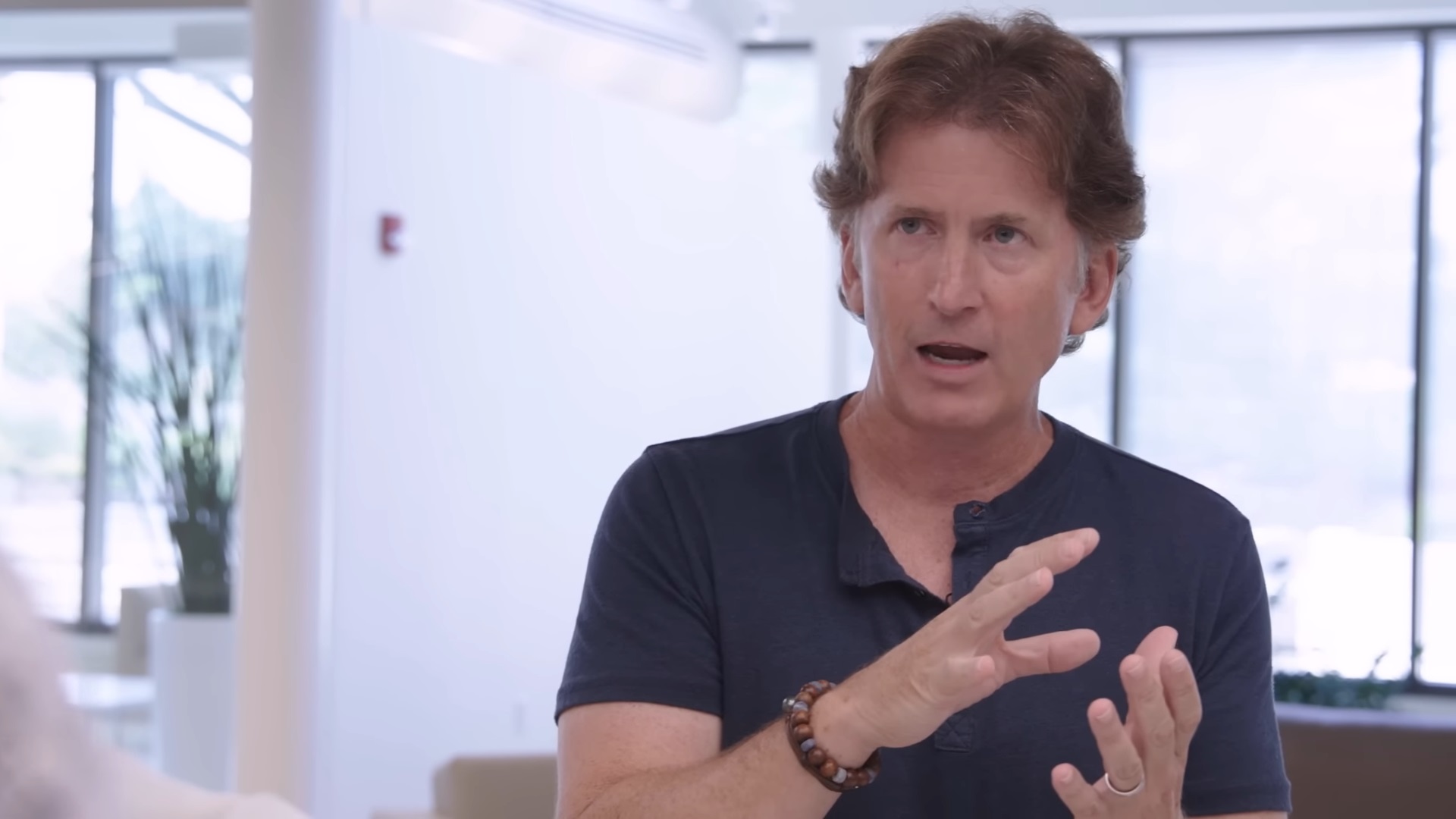- Published on
Todd Howard reflects on Starfield development: 'How do we generate these planets? Is that even a good idea? OK, maybe at the time, no, but we made it work'
Bethesda's Todd Howard discusses the development challenges of Starfield, including its planet-generating tech and its unique approach to exploration, which has been both praised and criticized by players.

As the Starfield Shattered Space DLC approaches, Bethesda boss Todd Howard discussed the making of the sci-fi RPG in an interview with BAFTA, reflecting on how Starfield challenged the studio and necessitated the planet-generating tech which previously sparked debate over the feel of the game.
"We cut very little from our games at Bethesda, which is why the games are so irresponsibly large," Howard says. "And it really comes to the whole team, you know, putting a lot of creativity into the game. It's obviously not just me, and I think that's what really makes them special."
Howard touches on his role as director and stresses the input of multiple disciplines and teams – artists, engineers, writers, and many more. Starfield proved to be an especially difficult project; Howard previously said that it took seven years of development to really find the fun in the game, and that he "thought we would find the answers faster."
"We pushed ourself, kind of, in every part of the game," Howard tells BAFTA. "But the biggest challenge was, first, how do we generate these planets? Is that even a good idea? OK, maybe at the time, no, but we made it work. You know, just, can we even generate a planet? And then once we could generate all of these, the simulation of the solar system around you ultimately is what's fun about that. There's a technological challenge in making it work, but then there's a design challenge in, 'How do you make that fun minute to minute, and then hour to hour for everybody playing it?'"
Even Howard was skeptical about fan reception to Starfield's world design. In August 2023, he reckoned not everyone may like it because it's so different from Bethesda's usual handcrafted games. "It's not the same as dropping you in a world like Skyrim," he said at the time. "You wander totally differently." The variety of experiences to be found in Starfield's planets was the subject of heavy debate and criticism after the RPG's launch, with many savoring the vastness of space and others missing some of the spontaneity and color of Bethesda's smaller worlds.
In an interview earlier this year, he revisited this sticking point. "We see the feedback, we see a lot of players saying 'this is what I want out of a Bethesda game, which is to explore a world in a certain way, and Starfield didn't give me that. I prefer the way it's done in Fallout or Elder Scrolls' and perfectly understandable, right?" he said, later adding that, "knowing that content is going to be different than you've seen from us in the past when you're exploring a landscape, that's some of the trade-offs we'll make to do what we think makes a science fiction game like this [...] and each of the franchises should kind of be its own thing."
Shattered Space has been positioned as the first big content drop in what Howard describes as years of "annual" story expansions and post-launch support, with Bethesda eyeing another Skyrim-grade tail for a game that proved to be a herculean expense and effort.